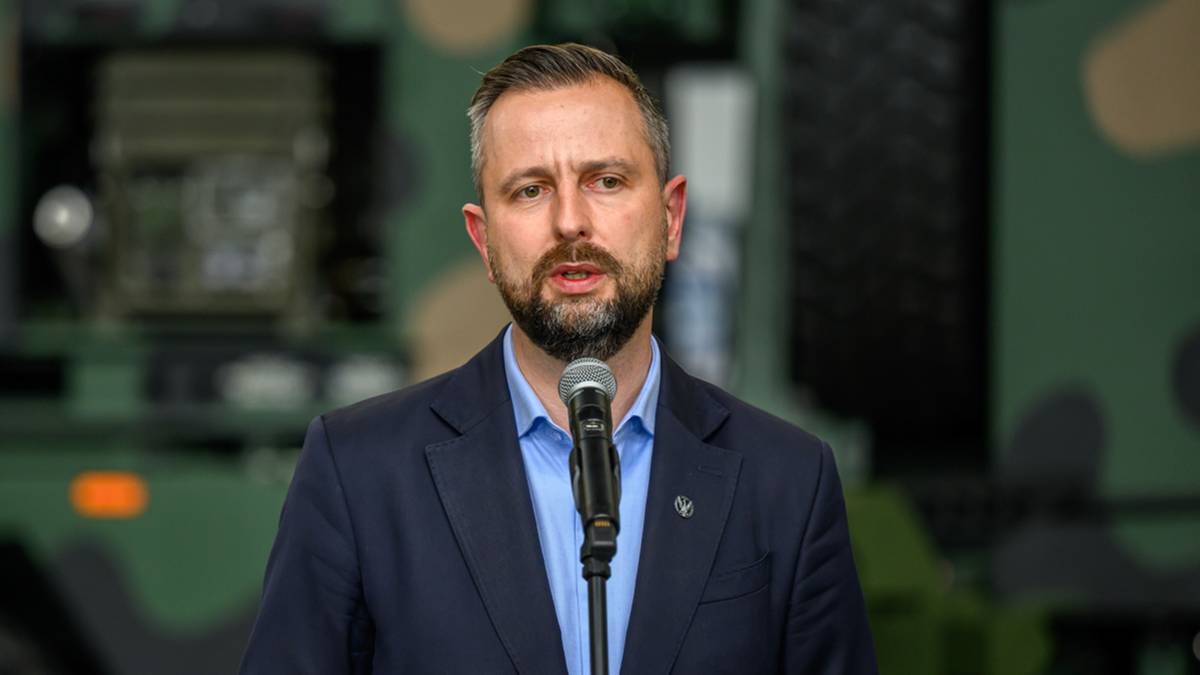Attack and defence in cyberspace, and over the Digital Shield Alliance maneuvers – this was what the “Defender ‘24 Cyber” exercises, which were attended by NATO soldiers, among others from Poland, looked like. The goal was to defend communications, critical infrastructure and cyberspace over moving troops. Digital struggles were accompanied by “Steadfast Defender 24” maneuvers.
During exercises Polish soldiers from Cyberspace defence Forces They became both defenders and attackers. A squad of defenders (Blue Team), who worked with Legionowa, included soldiers from the United States, Norway and Finland outside Poles. The squad of opponents (Red Team), made by Poles, Americans, Swedes and Estonians, operated with Tallinn. According to the plan, the blues were a shield for a complex logistics operation involving the spread of troops. The Reds in turn tried to disrupt the operation by performing cyber attacks for circumstantial purposes.
As the soldiers emphasize, “Defender ‘24 Cyber’ was a virtual clash. But if it had happened, the consequences would have been as physical as possible. – The exercise program covered the subject of cyberspace defence comprehensively. These include both safety issues of systems utilized by the military during and during the organisation of transports, as well as the request to defend the critical infrastructure of the countries through which these transports were moving," stressed Colonel Przemysław Lipczyński, spokesperson Cyberspace defence Army Command. The script included episodes during which the enemy, attacking in cybespace, threatened not only maneuvers and communication in the military. The blocking of civilian banking systems or even turning off light signals in large cities can lead to chaos in the streets and panic among residents, which will destabilise the situation in the country.
An crucial aspect of the exercise was cooperation between NATO allies. "Defender '24 Cyber" participants point out that communication is highly crucial in the protection of cyberspace, and it is not a substance of language, but of identifying the problem sufficiently rapidly and responding equally quickly. "In different countries we have different ways of communicating with each other, but the most crucial thing is that during specified exercises we learn about the methods and approach of allies to the problem. We saw the Polish part of the squad conducting operations in cyberspace and we could immediately compare this with our methods utilized in Norway. The challenge was not necessarily the method part of the struggles, but alternatively common learning from each another and combining different concepts to execute a circumstantial task," explained elder Sergeant Lasse Mikalsen of the Norwegian Cyber safety Center.
The protection of cyberspace includes multi-dimensional actions, requiring adequate cognition and full focus and the anticipation of efficient exchange of information between different teams. Major Brandon Krantz of the United States National defender of Maryland admits that although the exercise itself lasted little than 2 months, preparations for them took much more time. – This was a hard task preceded by more than a year of planning. It included many conferences devoted to preparations involving soldiers from the United States Army Command in Europe and Africa. As part of the preparations, many video conferencings with soldiers and experts from the USA, Poland, Estonia, Norway and Finland were held," said an officer of the U.S. National Guard.
The “Defender ‘24 Cyber” exercises were held at the same time as the end of May NATO “Steadfast Defender 24” exercises – the top maneuvers in many years, in which most of the States of the North Atlantic Alliance participate. Their goal was to spread soldiers, equipment and supplies from the United States and Western Europe to the east flank of NATO, including Poland. They were conducted simultaneously on 2 continents, the Atlantic and the Arctic, and in the cyberspace they were trying to attack and defend soldiers and experts in the framework of "Defender '24 Cyber".



![Nie spodobało się, iż nazwałam się imamką [Rozmowa z Seyran Ateş]](https://cdn.oko.press/cdn-cgi/image/trim=398;0;424;0,width=1200,quality=75/https://cdn.oko.press/2025/08/AFP__20170728__R207J__v1__HighRes__GermanyFranceReligionIslamMosque.jpg)